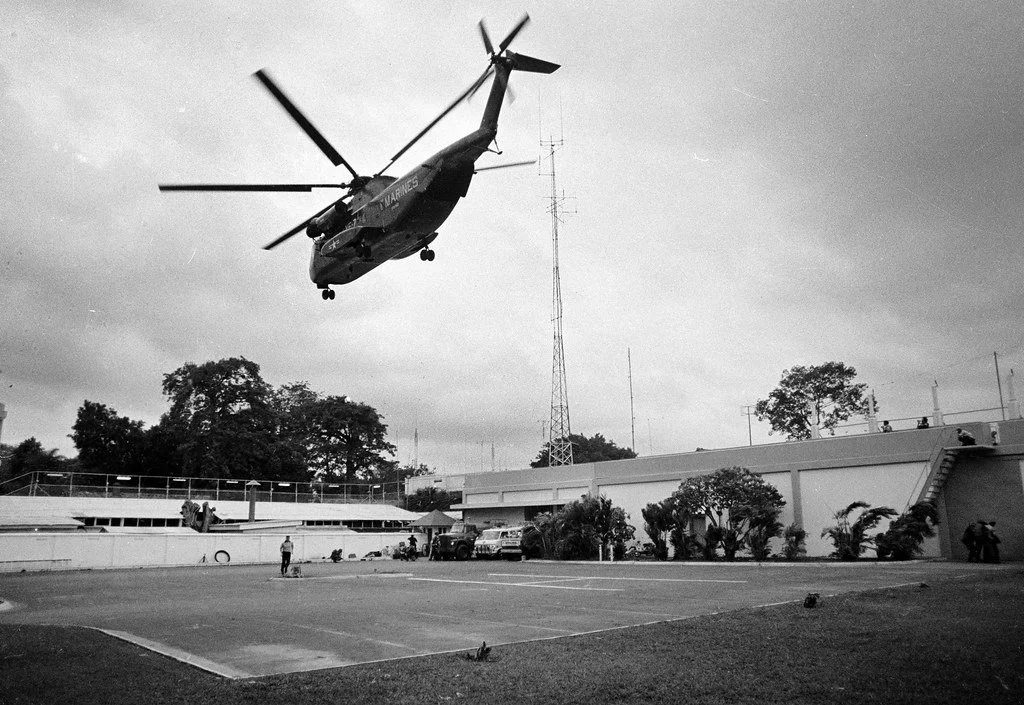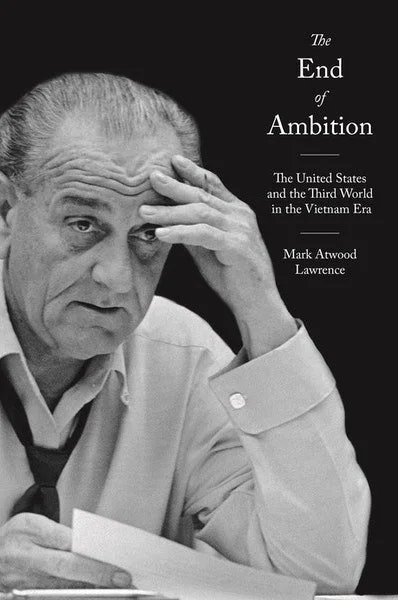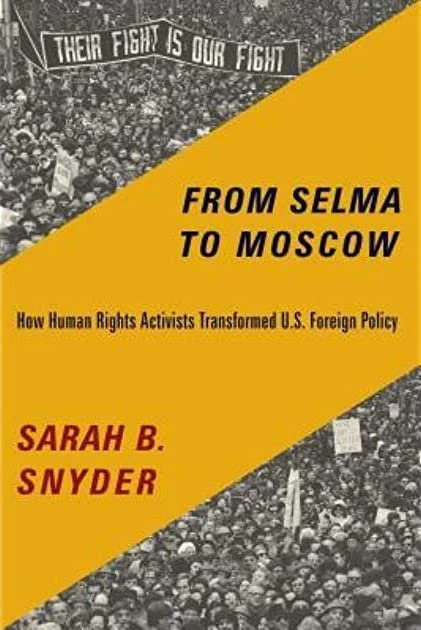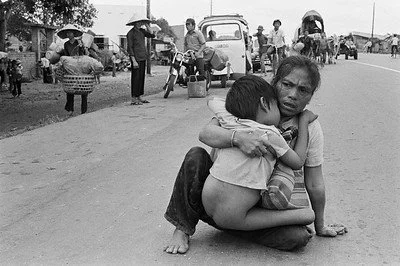Red Pill, Part II - Blind Ambitions
After Kabul, can U.S. foreign policy escape a long cycle of painful conflicts and perverse interventions?
Read
It’s hard not to see shades of Saigon in the frenetic evacuation of Kabul last month — and wonder why U.S. leaders seem not to have learned from bungled foreign wars and nation-building efforts. In this second part of a series reflecting on the debacle in Afghanistan, Will and Siva speak with two historians of the post-Vietnam era.
Mark Lawrence of the University of Texas at Austin and Sarah Snyder of American University shed light on the grandiose — and largely self-interested — visions America has tried to realize abroad. And they ask what hope there may be for a future of soft power and humanitarian goals.
Meet
Mark Atwood Lawrence is a historian at UT–Austin and Distinguished Fellow of the Robert S. Strauss Center for International Security and Law. He is also director of the Lyndon B. Johnson Presidential Library. Lawrence teaches and writes about U.S. foreign relations, the Vietnam War and the post-colonial era. His latest book, due out next month is The End of Ambition: The United States and the Third World in the Vietnam Era (Princeton University Press, 2021).
Sarah Snyder is a historian and professor of U.S. foreign relations at American University’s School of International Service. She specializes in the history of Cold War, human rights activism and human rights policy. She is the author of Human Rights Activism and the End of the Cold War: A Transnational History of the Helsinki Network (Cambridge University Press, 2011) and From Selma to Moscow: How Human Rights Activists Transformed U.S. Foreign Policy (Columbia University Press, 2018). Snyder has also written for leading academic periodicals, including Human Rights Quarterly and the Journal of Transatlantic Studies.
In his forthcoming book, Lawrence considers the consequences of Vietnam to the international ambitions of the United States, examining in particular multiple coups and small-scale foreign interventions that marked the late 20th century.
Like many commentators, Lawrence has compared the U.S. retreat from Afghanistan to the fraught conclusion of the war in Vietnam. But he argues that despite these setbacks America’s credibility on the world stage is salvageable.
According to Moyn, the public has come to accept persistent hostilities in part because humanitarian groups have successfully convinced military leaders to abide by the rules of war.
This paradox is a key issue he takes up in Humane, which unearths the arc, and the tensions, of humanitarian movements since the mid-1800s.
In her most recent book, Snyder shows how antiwar activism in the 1960s profoundly influenced the posture that the United States would take toward human rights on a global scale, complicating the picture of U.S. imperial designs in the Cold War era.
Although the United Nations designated 1968 as the International Year for Human Rights, Snyder writes, the United States was a reluctant and disengaged participant.
In a 2017 essay for the Washington Post, she wrote that the Trump administration echoed this kind of complacency, actively undermining struggles for human rights around the world.
Learn
In a new book called The Afghanistan Papers, Washington Post reporter Craig Whitlock unearths the story of how presidents of both major political parties, along with military commanders, continued to justify a flagging war effort.
It may take decades to understand the fallout from Afghanistan, but looking to the post-Vietnam years can be instructive. Historian Amanda C. Demmer’s book After Saigon’s Fall offers an account of refugee politics and human rights in the aftermath what was then America’s most prolonged conflict.
The PBS documentary Last Days in Vietnam looks at how U.S. leaders struggled with the decision on when and how to leave Vietnam.
Vietnam was hardly the only venture in anticommunist intervention that drove U.S. foreign policy after the Second World War. In her 2020 book Freedom Incorporated, historian Colleen Woods examines the expansion of American imperialism in the Philippines during the Cold War.
About This Series
Gripped by the events in Afghanistan over the summer, we decided to launch Season Three with a careful consideration of what happened in the war and why — along with its impact on democracy at home. Plus, we wanted to offer some perspective on America’s bungled international interventions and national-building efforts across time.
Inspired by Spencer Ackerman’s allusion to the 1999 thriller The Matrix, we’ve dubbed this series “Red Pill.” Fans of The Matrix will recall that Neo, the movie’s protagonist, is offered a red pill to escape the simulated world in which he’s trapped. So... just to clarify things, when Ackerman refers to having taken the “red pill” early on in America’s so-called war on terror, what he really means is that he initially took the comforting blue pill — and bought into a rhetoric of retaliation and national security at any cost. For this series, we’re using “red pill” in its original sense: a painful but much-needed dose of reality.









